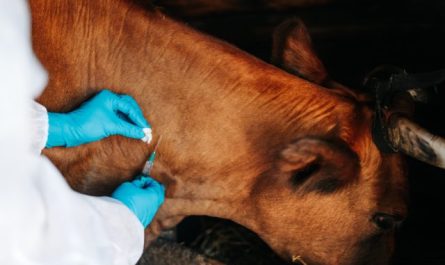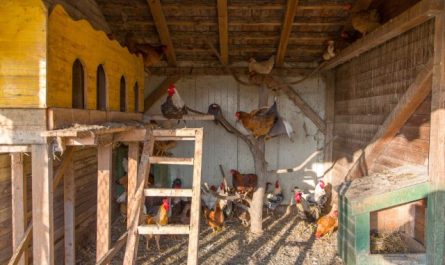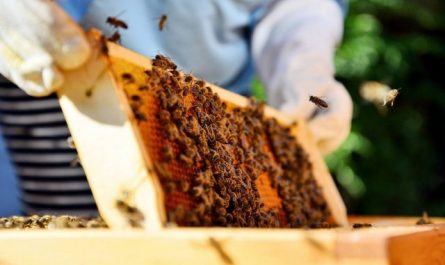Many people have wondered in their lives whether chicks will hatch from store-bought food eggs. But for some, this is not just a trivial interest, but a whole reason for experiments. And poultry farmers could save a tidy sum by buying a store-bought egg, since hatching eggs cost at least twice as much as food eggs. We will figure out whether it is possible to hatch chicks from store-bought eggs, and where it is better to buy them in order to have a better chance of successful incubation.

Food and hatching eggs – what’s the difference?
First, let’s talk about the basics. The eggs we see in supermarkets are food grade. This means that they are intended for human consumption and may not be suitable for incubation. Hatching eggs are eggs that are specifically selected for hatching chickens, their main criterion is fertilization. At the same time, hatching eggs can, of course, be used for food.
But food eggs are not used for incubation. The thing is that a rooster is not required to produce food eggs. Chickens lay eggs perfectly well without one, but they are unfertilized. That is, there is no embryo in food eggs, and chicks will not hatch from them.
Secrets of poultry farms: how a flock is formed
So, in order to hatch chicks from store-bought eggs, they must be fertilized. This means that on a poultry farm, laying hens must be kept together with roosters. But how does it all work in reality?
Different farms use different housing technologies. Most poultry farms have two adult flocks of chickens.:
- Working — such a herd contains only laying hens without a rooster. The main task of the working herd is the production of food eggs.
- Parental — it contains laying hens together with roosters. The main task of the parent flock is the production of incubation fertilized eggs to maintain and renew the working flock.
Eggs from the working flock are selected for sending to stores. Eggs from the parent flock are used for incubation within the walls of the poultry farm. But there is one nuance – there are often more incubation eggs than the poultry farm needs. Some of them end up in stores together with food eggs. This means that there is always a chance to hatch chicks from store eggs, although it can be very small.

There is another common method of keeping chickens, which is used by many poultry farms. This is keeping laying hens together with roosters in a working flock. Due to the fact that laying hens are not kept for more than a year on poultry farms, the working flock is very often updated. With a large flock, it is labor-intensive to separate the chicks by sex and keep them separately, so young animals are often released into the working flock “indiscriminately”, that is, both hens and roosters. This leads to the fact that most of the food eggs become fertilized and suitable for incubation. At the same time, the nutritional properties of the eggs and their quality remain the same.
Which poultry farm’s eggs are best to buy for incubation?
Above we learned that there is always a chance to get fertilized hatching eggs among store-bought food ones. But how to increase this chance? To do this, you need to know a couple of tricks.
Method of maintenance
Try to find out what type of housing is used at a specific poultry farm – floor or cage. In most cases, when keeping birds on the floor, they are not separated by sex. That is, the working flock contains both hens and roosters. When keeping in cages, there are most often no roosters in the working flock. Therefore, when buying eggs from a poultry farm with a floor housing method, the chance of getting more fertilized eggs for incubation is much higher.

Proximity to the poultry farm
Consider the distance of the poultry farm from the store where you will buy eggs. The closer it is, the better. This is important, since incubation fertilized eggs can be stored for a limited amount of time and at room temperature.
If eggs travel from the poultry farm to the store for more than four hours, there is a high probability that they will lose their incubation properties. Since long-distance transportation usually takes place in a refrigerator. It is also important to consider that eggs go through stages of preparation for shipment, then they are loaded into transport, unloaded, and placed on shelves in the store. All these processes take time. The faster the eggs travel from the hen to the store counter, the higher the probability that they will retain their incubation properties.
Important Subtleties of Choosing Eggs in the Store
Understanding which poultry farm’s eggs are best to choose is only half the battle. It is also important to know life hacks that will help increase the chances of buying fertilized store eggs.

Egg delivery time
The faster the eggs get from the hen to you, the higher the chance that they will retain their incubation properties. If they are kept at low or high temperatures for too long, the embryos in the eggs will die, and you will not be able to hatch chicks from them. Try to buy fresh eggs immediately after they are delivered to the store. This will increase the survival rate of the embryos.
Method of storing eggs
If the store has eggs that are stored in the refrigerator and simply on the shelves at room temperature, choose those on the shelves. The refrigerator is not a suitable place to store hatching eggs, the embryos in them die at low temperatures.
Category Eggs
To increase the chances of successful incubation, choose not the largest and not the smallest eggs. The best ones are category C1, or large C2. You should not choose category C0, since the largest eggs are most often either unfertilized, or the embryos in them have a lower chance of survival.
Appearance of eggs
If we try to choose clean eggs for eating, then for incubation it is the other way around. The cleaner the eggs, the more likely they are to have been washed several times or with more “aggressive” chemical solutions. The cleaner the eggs, the more likely the embryo will die in them.

Important nuances
When you do buy store-bought eggs and hope to hatch chicks from them, it is important to know a few basic points.:
- Place the eggs in the incubator immediately. They have been “traveling” for quite a long time, so do not store store-bought eggs, but start incubating them immediately.
- Do not wash eggs before incubation. Store eggs have already been washed at the poultry farm.
- Carry out incubation correctly. If you violate important rules and the incubation regime, the chicks will not hatch.
- Perform ovoscopy on the 10th day of incubation. This will help to identify unfertilized eggs earlier.
- Don’t expect much. If the hatchability of chickens is at least 50%, this is an excellent indicator for store-bought food eggs. Do not expect hatchability of more than 50%, although this sometimes happens, especially in the spring, when poultry farms stimulate birds to reproduce.




















